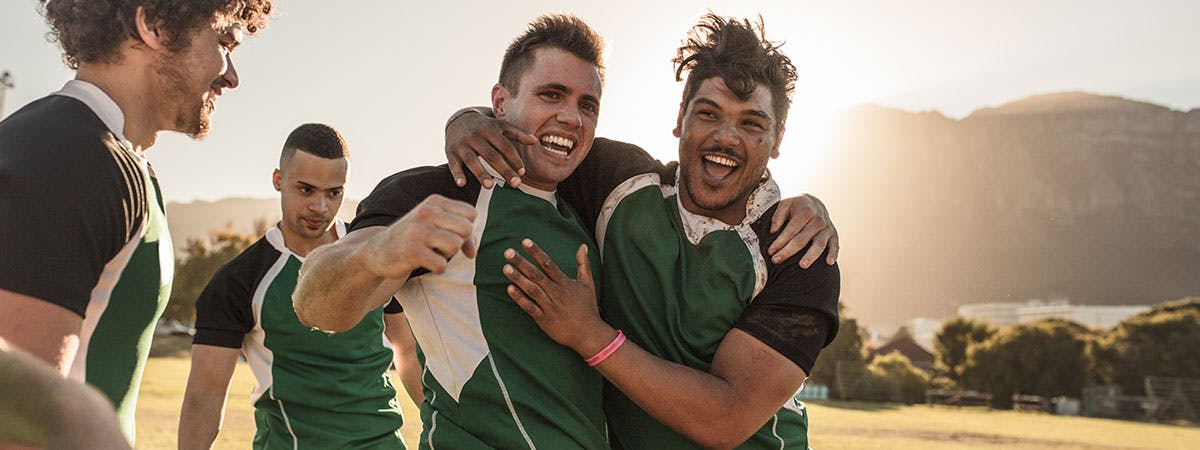If you're interested in the science of sport to help elite athletes achieve success, then you might want to consider a career as a sports nutritionist.

It is very difficult for athletes and sports clubs to perform optimally and succeed without the right nutrition and diet. Everything we consume has a direct impact on our speed, stamina, strength and overall performance – even a very slight change in diet could be detrimental, and essentially be the difference between winning and losing a gold medal!
This role is challenging, rewarding and really interesting – every client has different requirements and goals and, as a sports nutritionist, it will be your job to put your knowledge into practice to support clients to optimise health and performance.
Here’s a few things you might want to consider if you’re looking for a successful career as a Sports Nutritionist.
Correct qualifications
Successfully completing a sport-related degree will help you get the knowledge and expertise to pursue a career in the industry. After this, you might also consider postgraduate study to continue your development and understanding of the area. BCU offers an MSc in Sport and Exercise Nutrition, which is the perfect path to take if you are looking to go down the nutritionist route.
Be passionate
For the most part, this job will require you to be flexible with your work, as it is rarely a 9-5 day. Professional athletes have busy schedules and may need your support from morning through to night – depending on competition schedules. Therefore, you must have passion for the role – this will get you out of bed in the morning and keep you going, when otherwise you might think to give up. If you are passionate about sport and enhancing the clients and athletes you are working with then you will love this career and your passion will shine through.

Experience in the field
Our sports degrees provide you with opportunities to work with amateur and professional athletes to develop your experience. Students have worked with Birmingham City Football Club, Warwickshire County Cricket Club and Solihull Moors FC amongst others, however, as soon as you realise this is what you want to do, whether it is before, during or after university, you should be actively seeking any kind of hands-on experience in the field.
Give up your time to spend in the sport and exercise nutrition environment so that you get a sense of what work will be like and to gain invaluable practical experience, which will enhance your employability skills.
Build relationships
Gaining experience in the field goes hand-in-hand with building relationships. Networking and developing professional contacts will benefit you when looking for work, especially if you have your heart set on a particular sport or club.
Your lecturers at university should have lots of contacts too, so make best use of them, so that you leave prepared to start your dream career. Don't be afraid to use LinkedIn to connect with and message individuals from sports clubs and within the field - most people are more than willing to help!
Excellent knowledge
By gaining the right academic qualifications and experience, you will naturally have excellent knowledge in the field. However, it doesn’t stop there! Make sure that you keep up to date with the latest news, rules and regulations, science and theories to ensure that what you practice is always current and relevant.

Get accredited
After studying, it’s important to obtain professional accreditation to enhance your professionalism and keep you updated with the latest nutrition standards. Some useful bodies to consider are the Sport and Exercise Nutrition register (SENr), ISAK Level 1 in Anthropometry, Level 2 Food and Safety Hygiene Certificate and UK anti-doping advisor.
Stay humble
Working with big sports stars can be very exciting, but don’t let it carry you away. It’s important to remain professional, respected and focused throughout your career so that you can go from strength to strength to enhance your profile, as well as the profiles of those you work for. Staying grounded and integrating moral values in your work will send you a long way in this industry.
Take time to reflect
Finally, always take time to reflect on what you are doing and achieving to see what worked well and what didn’t, so that you can learn and build for next time. Working across a range of sports and with different individuals, it’s important to always evaluate what you do to improve and grow.